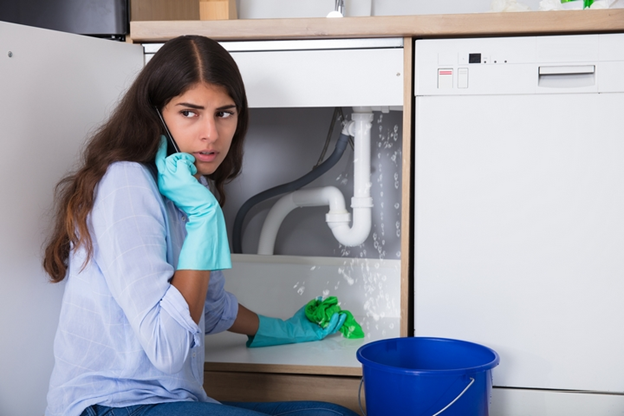A great way to prevent plumbing leaks starts with knowing what are the most common causes of leaks. Plumbing leaks occur due to many reasons, such as wear and tear with age, corroding pipes, pressure, and poor installation. Even small problems can quickly turn out to be big issues if not dealt with promptly. Knowing what might cause them to leak allows a person to take measures before these events occur, saving the plumbing system from costly repairs. In addition, knowing potential problem areas of the system, such as joints and connections, is equally important for preventing leaks.
Inspect Pipes and Fixtures on a Regular Basis
One of the best ways to prevent a leak is to inspect your plumbing system regularly. Showy pipes, faucets, and fixtures should be checked on a regular basis for any signs of wear, rust, and corrosion. Be extra vigilant at those spots where pipes are joined together, as these joints are loose and often leak. This can be something that saves you in the future from more serious damage. If there is discoloration, water stains, or a leaking dampness around the pipes, then it might be an indication to call the plumber for further assessment.
Maintaining Proper Water Pressure
Maintaining the right water pressure at home helps avoid plumbing leaks. Too much pressure straining on the pipes will give you cracks and eventually, leaking. Moreover, this may result in joints facing a loose possibility over time, further increasing the risk of leaks. Because of that, get a pressure gauge and check your water pressure frequently. The ideal water pressure for your home should be between 40 and 60 psi. If you find that your water pressure is always high, then installing a pressure regulator at the inlet will keep the pressure within a safe range and save your plumbing system unnecessary stress.
Insulating Pipes to Prevent Freezing
During colder climates, the freezing temperatures can cause the pipes to burst and result in a good deal of water damage that is very expensive to repair. This will avoid an incident from taking place because usually pipes are insulated, especially those in the unheated areas like basements, attics, and crawl spaces. Pipe insulation helps keep the temperature from getting the water frozen and expanded. Also, when temperatures outside become very low, allowing both the cold and hot faucets to drip a little will relieve pressure inside the system, thereby reducing the formation of frozen pipes. This shall not only prevent leakage but will also increase the life expectancy for your plumbing.
Avoid Chemical Drain Cleaners
Though the chemical drain cleaners may appear to be a quick solution to clogs, they do more damage to your plumbing than good. The harsh chemicals are known to erode pipes, especially on continuous usage, which can increase the propensity for leakage. Plunge them or use a drain snake rather than always resorting to some chemical solution for unclogging. Instead, regular maintenance by flushing your drains with a mix of baking soda and vinegar can really help in keeping them clear without any possible damage to your pipes. Of course, if the block is severe, it is always best to call in a professional plumber to prevent further damage.
Replacing old/damaged pipes
Those with older or damaged pipes may be prone to leaks, so replacement may be in order to avert plumbing problems. If your home uses galvanized steel or lead pipes, you may want to consider an upgrade to copper or PEX. Modern materials, like these, won’t corrode as easily and are much more resistant to the rigors posed by your home’s plumbing. Replacing old pipes can be a bit expensive, but it will handle the leaks and give long-term integrity to the in-home plumbing. Chances of leakage would decrease with a regular update of the plumbing system due to which the quality of water supplied would improve.
Water Leak Detectors Installation
The installation of a water leak detector is an initiative measure that saves from expensive destruction due to leakage. They warn of the presence of moisture if installed next to appliances that could leak, pipes, or fittings. State-of-the-art systems shut off the water supply in such a situation to prevent further damage. Water leak detectors provide peace of mind, particularly when away from home for periods of time. These devices prevent loss of water, reduce potential repair costs, and aid in safeguarding your property from water damage by detecting leaks at their early stages.
Preventing plumbing leaks also includes taking care over what you put down your drains. Grease, food particles, hair, and other debris can collect in pipes, leading to clogs that cause leaks. Installing drain screens can help catch these items before they get into your plumbing system. Also, avoid flushing anything down your toilet other than toilet paper since others tend to block pipes and cause backflow. In fact, educating house members on proper disposal methods is very important to have a healthy plumbing system and not have leaks.

Recent Comments